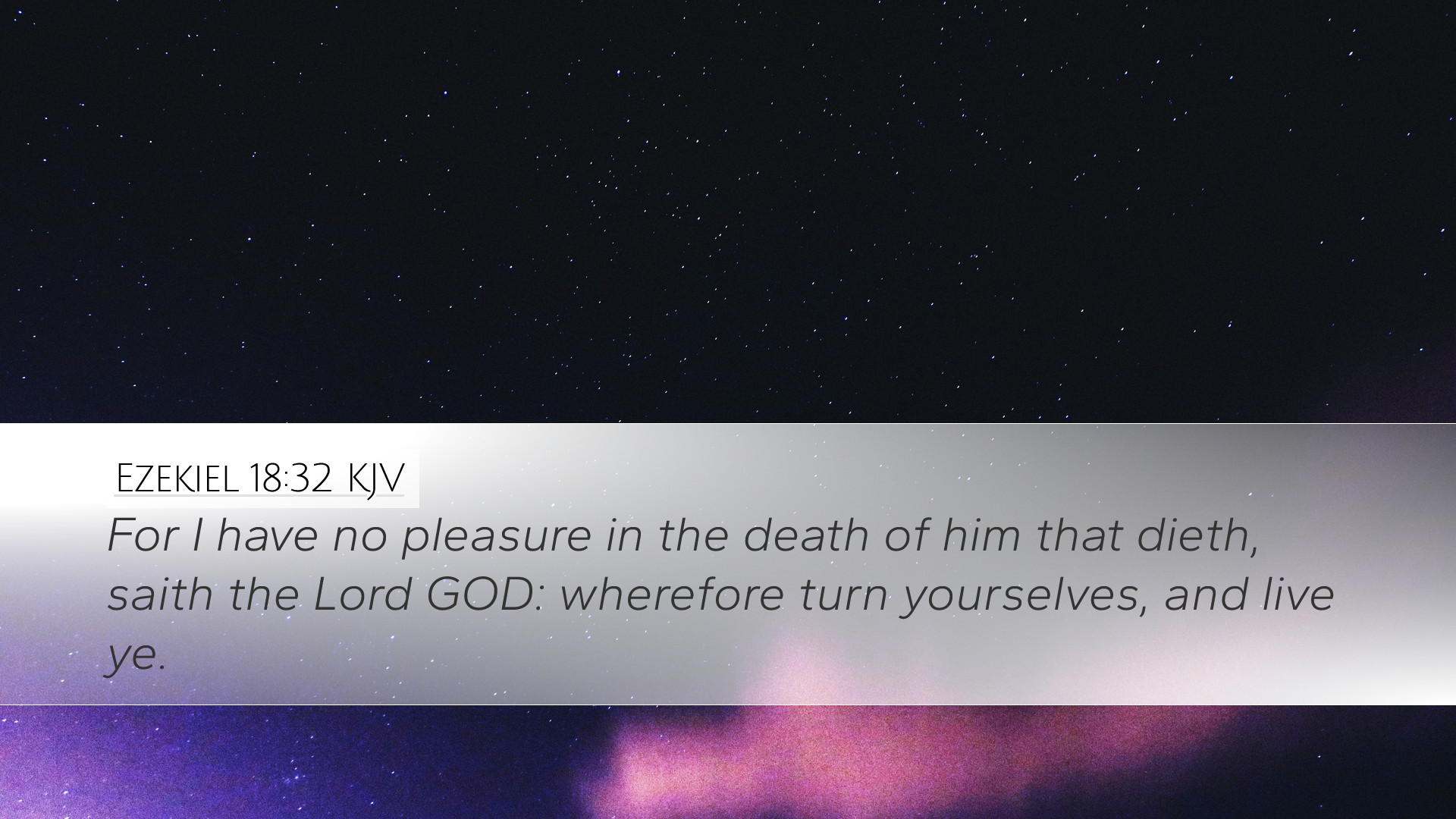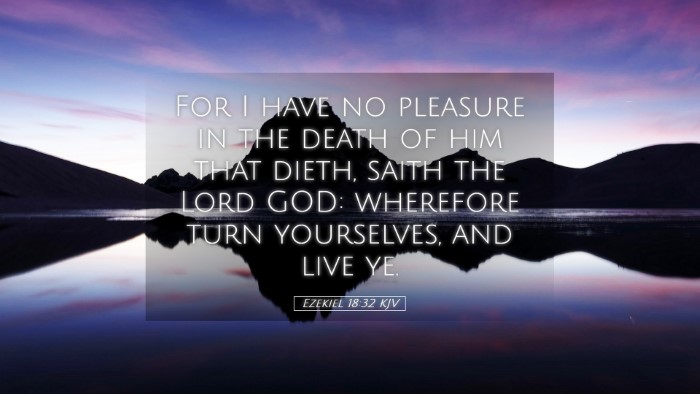Ezekiel 18:32 - Commentary
Bible Verse: "For I have no pleasure in the death of anyone, declares the Lord God; so turn, and live."
Introduction
The verse Ezekiel 18:32 encapsulates a profound theological truth about God's character and His desires for humanity. This commentary draws on insights from various public domain sources and aims to provide a comprehensive understanding for pastors, students, theologians, and Bible scholars alike.
Contextual Background
The Book of Ezekiel is set against the backdrop of the Babylonian exile. Ezekiel, a prophet and priest, addresses the Israelite community, delivering messages of judgment, hope, and restoration. Chapter 18 is pivotal as it focuses on personal responsibility and the nature of God's justice. In this chapter, Ezekiel emphasizes that individuals are accountable for their own actions, countering the prevailing notion of collective guilt.
Analysis of Key Themes
1. God's Desire for Repentance
In this verse, God expresses a sincere longing for the repentance of His people. This theme is consistent throughout Scripture, where God continually calls humanity to turn away from sin. Matthew Henry notes that God's appeal to Israel reflects His lovingkindness and desire for their salvation. It is not His intention to see anyone perish but to offer grace and life.
2. The Nature of Divine Justice
Albert Barnes highlights that the passage encapsulates a core truth about God's justice. God's fairness is evident in the way He deals with sin; He does not take pleasure in punishment but seeks to restore and redeem. This reflects the notion that divine justice is intertwined with mercy, offering hope for renewal.
3. Life as a Gift from God
The imperative to "turn, and live" speaks to the vital connection between repentance and spiritual life. Adam Clarke emphasizes that life in its fullest form comes from aligning with God. Rejecting sin leads to the embrace of divine life. Thus, the invitation to turn is an invitation to experience fullness and vitality beyond mere physical existence.
Theological Implications
This verse raises several important theological principles:
- God's Sovereignty and Grace: Ezekiel 18:32 uplifts the fundamental belief that God's sovereignty encompasses His grace. His offer of life is not an arbitrary choice but a reflection of His character.
- The Human Response: The call to turn is anthropocentric, emphasizing human agency. God honors human will and invites individuals into the transformative process of repentance.
- Hope in Restoration: The notion that God takes no pleasure in death assures believers of His relentless pursuit for restoration, suggesting that even those who stray can return.
Practical Applications
For pastors and leaders, Ezekiel 18:32 provides rich ground for preaching and pastoral care:
- Message of Hope: The text serves as a comforting reminder that no one is beyond the reach of God's grace. Pastors can empower congregants with the truth that repentance leads to life.
- Encouragement towards Repentance: The verse can be a basis for sharing the importance of a communal culture of repentance within the church. Highlighting God's desire for reconciliation can motivate individuals to seek restoration in their lives.
- The Call to Discipleship: Discipleship can be framed as a journey of continual turning towards God, underscoring that this process is central to living a life filled with His presence and purpose.
Conclusion
Ezekiel 18:32 is a profound reminder of God's heart for people and His desire for life over death. As He extends the invitation to turn and live, He calls humanity into a relationship marked by grace, accountability, and hope. For leaders and believers alike, this passage is a clarion call towards a life that is reflective of God's merciful and just character.


